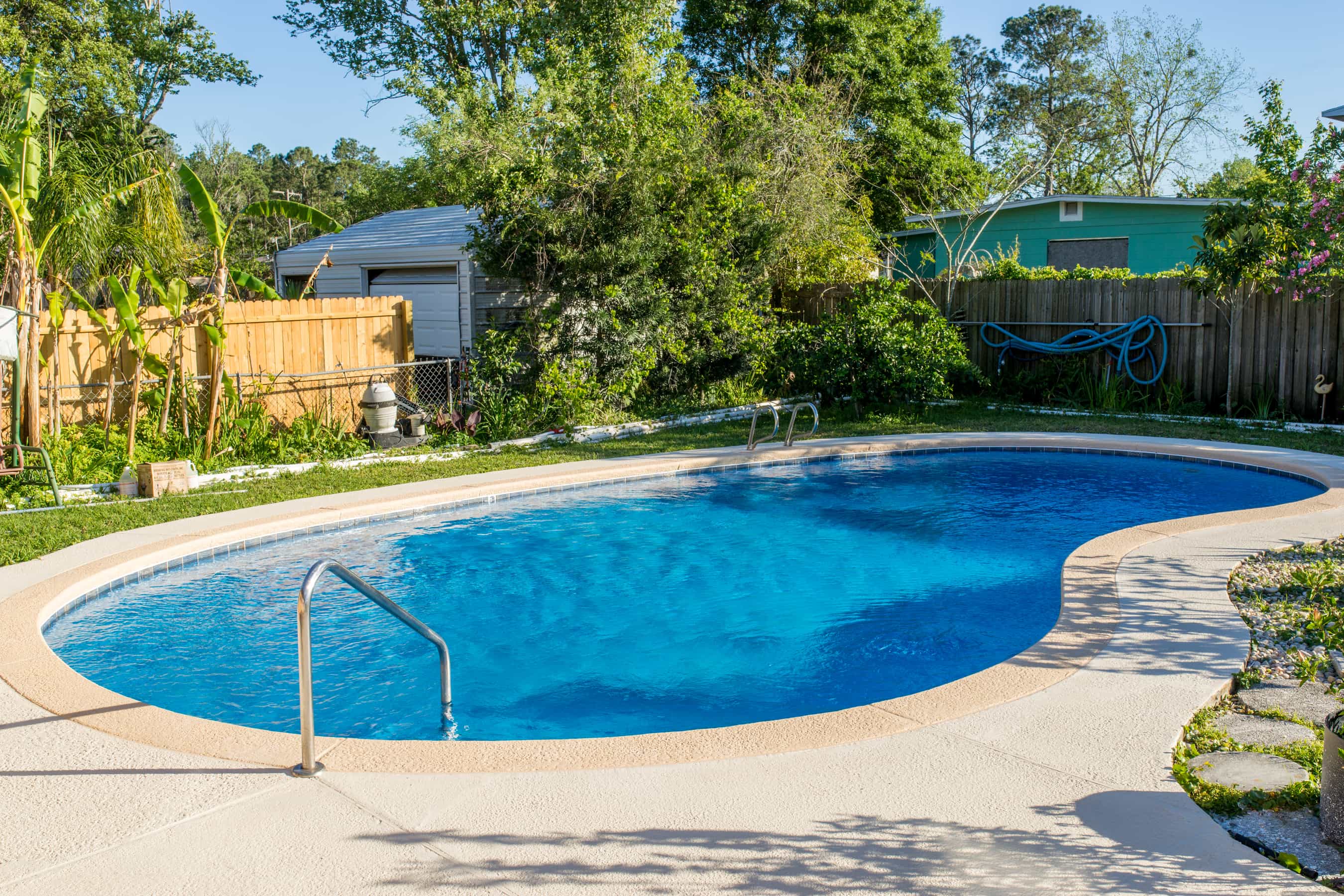A Beginner’s Guide to Chemical Balance

Unless you are a certified pool chemist, chances are it might take a little bit of research to figure out how to use chemicals for your pool. It might be tempting when you see all these foreign chemical names and numbers to want to give up and let your pool turn into a moldy retention pond. It’s no secret that maintaining a pool is a lot of work, but staying on top of it pays off. A beautiful, clean pool is a homeowner’s dream, and guests are thoroughly impressed by a clean pool too. With a little bit of education, you can be relaxing in a pristine pool you cleaned all on your own, in no time.
Volume of Your Pool
Before we start talking about chemicals we have to figure out how much water we are dealing with. Putting too little or too many chemicals in your pool can change the chemistry of it. Here’s where the math comes in: Measure the length, width and depth of your pool. You’ll multiply this number by the number of gallons of water per square foot which is about 7.48.
Here’s an example:
10 ft (width) x 20 ft (length) x 4 ft (depth) = 800 ft x 7.48 gallons = 5984 gallons
Not too bad right? It’s only a tad bit more tricky if you have a graduated pool, just add the shallowest depth and the deepest depth, divide by 2, and that will give you the average depth. So, there you have it! Now you can find out how many gallons of water are in your pool.
Chemical Testing
Now for the fun part… measuring chemicals! Of course, the most important thing to remember is to keep a solid cleaning routine. Vacuuming and cleaning skimmers should be done weekly, and pumps should be cleaned twice during the swimming season. The more algae and other nasty buildups, the more chemicals you’ll need, and, chances are, the more complicated the cleaning process will be. To measure the chemical makeup of your pool, you will need a test kit. You can find one of these at a local pool store. Below is a rundown of the measurements to look for and how often to look for them:
Chlorine – chlorine is arguably the most important chemical for your pool, as it is the killer of algae and other bacteria that may creep into your pool. Chlorine comes in mainly three different forms: powder, tablets and liquid.
Measurement: below 3 ppm
Check: 2 or 3 times a week
pH – pH is the measure of the acidity of your pool. Many different things can affect this, so it’s important to check frequently. If it rains substantially, check your pool since rainwater will always decrease the pH level. To increase or decrease the pH level you simply buy pH level increaser or decreaser from the store.
Measurement: 7.4 – 7.6
Check: 2-3 times a week with chlorine
Total Alkalinity – total alkalinity is the number of acid buffers you should have in your pool. This is what keeps the pH from fluctuating in the pool. You can raise alkalinity with an alkalinity booster from the store, if alkalinity needs to be lowered, contact a pool professional to know what acid works best for your pool.
Measurement: 80 ppm – 150 ppm
Check: once a week
Calcium Hardness – The calcium hardness is simply the amount of calcium in your pool. High calcium hardness can cause calcium deposits to form on the surface of the water, as well as on the walls and on equipment. Low calcium hardness, however, can cause wear and tear to your pool walls. If you are low, hardness increaser can be used to keep your pool walls strong and protected.
Measurement: 200 ppm – 300 ppm
Check: once a month
Once you get your measurements you can buy these chemicals at your local pool store right off the shelves! Each chemical is between $10 – $20 depending on what chemicals you need to increase and decrease. The more often you check your pool, the better. Think of your pool as a living thing, you have to nourish it. Every pool is different, and just because it looks clean doesn’t necessarily mean it is. Stay on top of your routine and your pool will flourish. Your pool is a centerpiece of your home, and keeping it healthy is crucial so that you, your family and your friends can make the most out of it!
